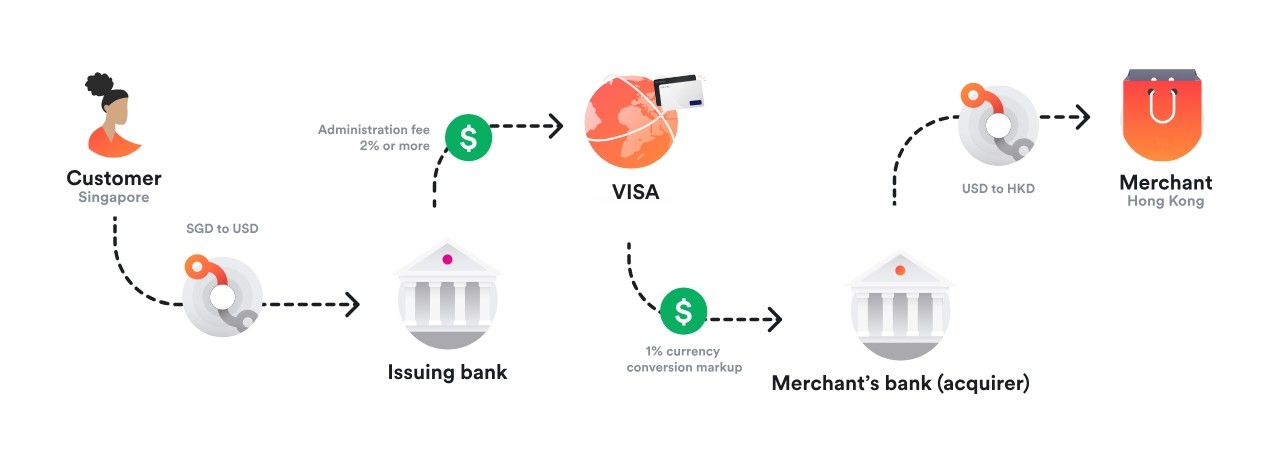The PYPROXY Proxy Checker has become an essential tool for individuals and organizations that need to assess the performance and quality of their proxies. This article provides an in-depth review of its three key features: speed, accuracy, and stability. By evaluating these aspects, users can better understand the tool's effectiveness, make informed decisions, and maximize its potential in various use cases. In this article, we will break down the tool's performance, analyzing its strengths and areas of improvement to offer practical insights for clients. Introduction: What is PyProxy Proxy Checker?PyProxy Proxy Checker is a Python-based tool designed to help users test the effectiveness of proxy servers. Its core functionality revolves around checking the speed, accuracy, and stability of proxies. By doing so, it allows businesses, cybersecurity professionals, and casual users to ensure that the proxies they use are optimal for their specific needs. Given the increasing importance of privacy, data security, and seamless internet access, this tool has gained popularity among users who rely on proxies for various applications, including web scraping, anonymous browsing, and bypassing geo-restrictions.1. Speed Analysis: How Fast is PyProxy Proxy Checker?Speed is a critical factor when assessing any proxy tool. PyProxy Proxy Checker is designed to efficiently test multiple proxies simultaneously, offering users a comprehensive performance report. Here's a breakdown of the speed analysis:- Multiple Proxy Testing: PyProxy Proxy Checker excels in its ability to handle large batches of proxy addresses at once. The tool sends requests to proxies in parallel, which greatly reduces the time spent testing individual proxies one by one. This batch testing feature is particularly useful for businesses and individuals who need to test hundreds or thousands of proxies quickly.- Response Time Measurement: The tool measures the response time of each proxy, providing insights into how long it takes to connect and retrieve data. This information helps users assess whether the proxy is suitable for time-sensitive tasks, such as real-time data gathering or streaming.- Optimized Performance: Compared to other proxy checkers, PyProxy Proxy Checker is optimized for speed, minimizing unnecessary delays between checks. This optimization is especially important in large-scale applications, where even small delays can accumulate and lead to significant performance issues.In general, the tool performs well in terms of speed, especially for users with large proxy lists. However, the speed may be affected by external factors such as network latency, the geographic location of proxies, and the load on the servers being tested.2. Accuracy: Ensuring Reliable Proxy TestsAccuracy is another crucial metric for any proxy testing tool. PyProxy Proxy Checker stands out due to its high accuracy in detecting working and non-working proxies. Here's an overview of its accuracy capabilities:- False Positive Rate: One of the challenges in proxy testing is minimizing the occurrence of false positives (incorrectly marking a proxy as working when it’s not). PyProxy Proxy Checker has a low false positive rate, making it reliable for users who require accurate data.- Protocol Support: The tool supports a wide range of proxy protocols, including HTTP, HTTPS, and SOCKS. This ensures that users can test a variety of proxy types, whether they are designed for web browsing or more specialized tasks.- Real-Time Validation: Accuracy is further ensured by the tool’s real-time validation mechanism. By regularly testing proxies against known websites or servers, PyProxy Proxy Checker provides an up-to-date status of proxy functionality. This helps users avoid using proxies that have become unreliable or outdated.- Geolocation Accuracy: In addition to testing proxy functionality, the tool can also provide insights into the geolocation of the proxy servers. This feature is particularly useful for users who need proxies from specific regions for bypassing geo-restrictions or for targeted marketing.While PyProxy Proxy Checker is highly accurate, users should still consider additional checks when working with critical tasks, as no tool is entirely foolproof. The accuracy of proxies can also be influenced by their provider’s infrastructure and external factors like server maintenance or internet outages.3. Stability: Ensuring Consistent Proxy PerformanceStability is essential for tasks that require continuous proxy usage over extended periods. PyProxy Proxy Checker evaluates not only the immediate functionality of proxies but also their stability over time. Here's how it performs in terms of stability:- Uptime Monitoring: One of the key features of PyProxy Proxy Checker is its ability to monitor proxy uptime. It tracks whether the proxies remain stable and accessible over time, giving users valuable information about their longevity. This is particularly beneficial for long-term projects that require reliable proxy support.- Error Handling: The tool also handles errors efficiently. If a proxy fails or experiences connectivity issues, PyProxy Proxy Checker can quickly identify and flag these problems, allowing users to take corrective action promptly.- Proxy Rotation: For applications like web scraping or accessing restricted content, stability often requires rotating proxies to avoid detection or IP blocking. PyProxy Proxy Checker supports proxy rotation, ensuring that proxies remain stable and provide uninterrupted service.- Consistency Across Tests: Stability is not just about uptime; it’s also about consistency. PyProxy Proxy Checker offers users consistent results across multiple tests, ensuring that the proxy’s performance doesn’t fluctuate erratically. This consistency helps users avoid using proxies that may perform well initially but degrade over time.The stability of proxies, however, can be influenced by several external factors, including the stability of the proxy server’s own infrastructure. While PyProxy Proxy Checker provides a robust analysis, users should ensure that they have access to reliable and stable proxy providers.4. Practical Applications: Who Can Benefit from PyProxy Proxy Checker?Given its strengths in speed, accuracy, and stability, PyProxy Proxy Checker has a wide range of applications for different users:- Cybersecurity Professionals: For those in cybersecurity, it is crucial to ensure the anonymity and security of proxy servers. PyProxy Proxy Checker helps professionals identify reliable proxies that can be used to conduct safe and secure activities online.- Businesses: Companies that rely on proxies for web scraping, data mining, or market research will find PyProxy Proxy Checker invaluable. The tool’s ability to test large batches of proxies quickly and accurately is a significant advantage for businesses that need high-quality data.- Content Access: Users looking to bypass geo-restrictions or access content from different regions can use PyProxy Proxy Checker to ensure that their proxies are functional and located in the desired region.- Digital Marketers: For digital marketers, stability and speed are crucial when managing large-scale campaigns that rely on proxy usage for account management or automated browsing.Conclusion: Is PyProxy Proxy Checker Worth Using?In conclusion, PyProxy Proxy Checker is an excellent tool for evaluating the speed, accuracy, and stability of proxies. It excels in handling large numbers of proxies efficiently, providing reliable results with minimal delays. Its accuracy and real-time validation ensure that users can trust the information it provides, while its stability features make it a solid choice for long-term projects.For anyone who relies on proxies for security, data gathering, or content access, PyProxy Proxy Checker offers significant value. With its user-friendly interface and powerful testing capabilities, it remains a top choice for professionals and casual users alike. However, like any tool, users should remain aware of external factors that could impact proxy performance, such as server load and network issues. Nonetheless, PyProxy Proxy Checker is a must-have for anyone serious about proxy testing.
Nov 06, 2025



































































